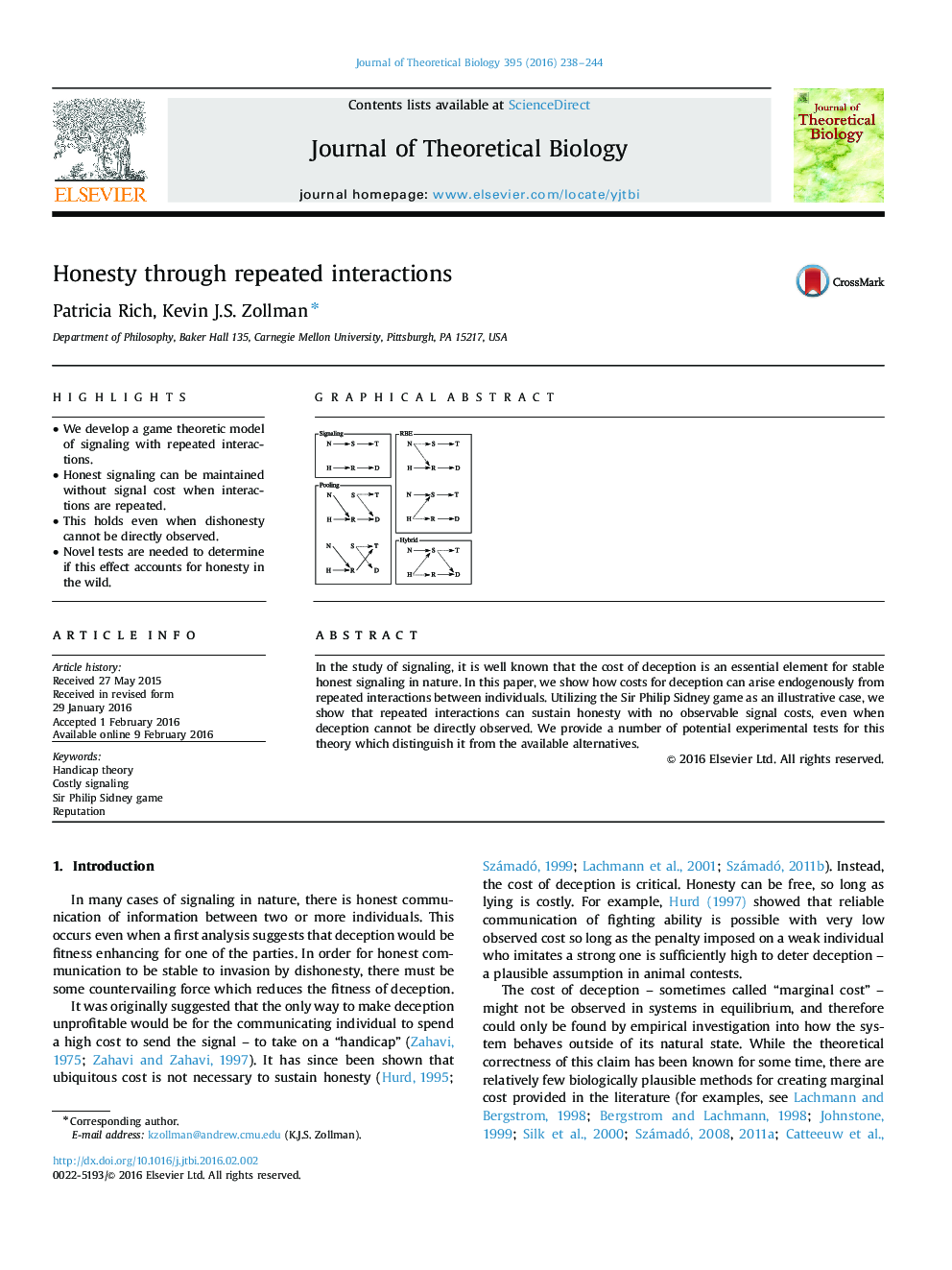| Article ID | Journal | Published Year | Pages | File Type |
|---|---|---|---|---|
| 4495853 | Journal of Theoretical Biology | 2016 | 7 Pages |
•We develop a game theoretic model of signaling with repeated interactions.•Honest signaling can be maintained without signal cost when interactions are repeated.•This holds even when dishonesty cannot be directly observed.•Novel tests are needed to determine if this effect accounts for honesty in the wild.
In the study of signaling, it is well known that the cost of deception is an essential element for stable honest signaling in nature. In this paper, we show how costs for deception can arise endogenously from repeated interactions between individuals. Utilizing the Sir Philip Sidney game as an illustrative case, we show that repeated interactions can sustain honesty with no observable signal costs, even when deception cannot be directly observed. We provide a number of potential experimental tests for this theory which distinguish it from the available alternatives.
Graphical abstractFigure optionsDownload full-size imageDownload as PowerPoint slide
